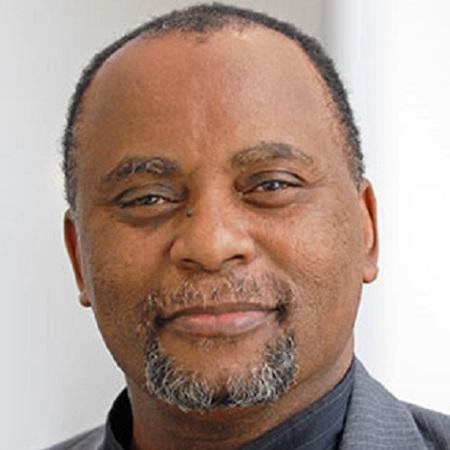

Bernard K. Freamon joins the Elisabeth Haub School of Law at Pace University faculty as a visiting professor for spring 2022, teaching Criminal Law and an Advanced Criminal Law Seminar on Slavery and Human Trafficking. A professor at Seton Hall Law School for 37 years, he achieved emeritus status when he retired in 2016. Professor Freamon's research and teaching interests focus on Islamic Jurisprudence and Islamic Legal History. Learn more about Professor Freamon, his current work, and his advice for law students interested in these particular areas of law in this student-led interview.
What will you be teaching this semester at Haub Law?
Criminal Law and Advanced Criminal Law Seminar on Slavery and Human Trafficking.
Where are you coming from? What brought you here?
I taught at Seton Hall Law for 37 years and retired in 2016. I taught post-conviction remedies, which deals with a defendant’s claims after conviction and habeas corpus. I also taught evidence, PR, and Islamic Jurisprudence. While there, I ran several study abroad programs, including programs in Egypt, Zanzibar, and Jordan. The program in Zanzibar focused on slavery and human trafficking. The program in Egypt focused on Islamic Jurisprudence.
I taught a summer writing course at the Judicial Institute at Pace. I saw Pace was looking for visiting professors, it interested me, so I applied and was offered the position. Pace has a good criminal law reputation. I’m happy to be at Pace, I’m really enjoying it. I’ve got great students.
Can you tell me about your work? What are you working on now?
My main work is on slavery in the Islamic world. I just finished a book on slavery in the Islamic world and in Muslim cultures. There’s a movement among scholars to abolish slavery under Islamic Law. However, there’s an argument to the contrary and this argument enables human trafficking, forced labor, and slavery in some places in the world. 40% of the world’s enslaved people are enslaved in the Muslim world. Abolishing slavery under Islamic Law would enable the Islamic govts to prohibit slavery and related activities – forced labor, forced adoption, servile marriage, child marriage. I have a website called “Ijmāʿ on slavery” — it means “consensus on slavery” and it seeks to develop a Muslim scholarly consensus on slavery.
I recently took a job at Roger Williams Law School, which is one of the only two law schools in the U.S. that have a mandatory Critical Race Theory course. I was hired as the director of that course, and it’s related to my scholarship. I'll be moving to Rhode Island in June.
I also have a small post-conviction relief practice in NY and NJ representing prisoners.
What brought you to slavery in islamic world?
I’ve been interested in slavery because I’m African American. I traveled to Zanzibar while I was teaching abroad. I learned Zanzibar was effectively the capital of the Indian Ocean slave trade, which was largely run by Muslims. Most Muslims are taught to revere the equality of all humans, and that there was and is no slavery in Islam. This is factually wrong. Although Islam teaches the equality of all human beings, the practice of Islam has not lived up to that ideal. It’s like Thomas Jefferson who said all men are created equal, yet owned slaves.
What advice do you have for law students interested in your field of law?
Try to get relevant experience.
For Slavery - there are opportunities at the UN office on Drugs and Crime, there are also anti-slavery NGOs. There is one in Washington called Free the Slaves. The oldest human rights organization in the world is Anti-Slavery International and it’s based in the UK. There are also some in France, Ireland, etc. So a law student should try to get an internship in one of these NGOs or the UN Office on Drugs and Crime. Also, working in a Justice Dept. or US Attorney’s Human Trafficking Office is good experience and any local prosecutor’s office that has an anti-trafficking department.
For post-conviction relief experience, I would suggest the state or federal public defender’s offices, or perhaps conviction integrity units in a prosecutor’s office; not quite post-conviction relief though, it’s from the prosecutor’s side. It is also important work.
It is worth noting that, for both slavery and post-conviction relief, habeas corpus remains the primary judicial remedy. Being a slave is very much like being in prison.
Learn more about Bernard K. Freamon.
Gabriella Mickel, a 2023 JD Candidate at Haub Law, authored this faculty Q&A. Gabriella is a Land Use & Haub Scholar, the President of the Environmental Law Society, a Junior Associate on Pace Environmental Law Review, and on the E-Board for NLG, Lambda, and ACS. Outside of school, she owns three sports supplement stores and is the co-editor of the Law Student Corner section of the NYSBA EELS Journal.
